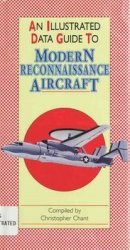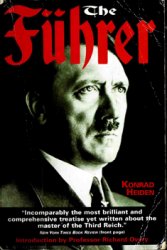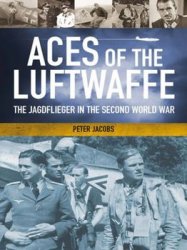Debonair is established by Franco Mancassola, founder and owner of the defunct Hawaiian carrier Discovery Airways, at Crawley, West Sussex, on October 1, 1995. Chairman/CEO Mancassola, two major partners, and 400 individual investors, primarily from the U. S, supply capitalization of $23.5 million. With an ownership requirement of 51% European, however, the carrier is required to raise $44.5 million from British and Continental sources.
Debonair is the first contract customer for British World Airlines, Ltd. s new Air Operators’ Certificate (AOC) program under which the veteran U. K. carrier will offer its management, business, and engineering expertise plus its AOC to assist the start-up as it seeks viability. The program is similar to one offered to fellow start-up easyJet Airlines, Ltd. by Air Foyle, Ltd. When prepared, Europe’s newest entrant will offer regional scheduled and charter passenger services to domestic and regional destinations from London (LGW).
After reviewing the growing new hub operations of British Airways, Ltd. (2) at Gatwick Airport, an operating base is, instead, established at another London site, Luton Airport, where takeoff and landing slots are more readily available. Airport officials build the company a small headquarters building and a dedicated check-in facility at Luton.
A fleet of 5 leased British Aerospace BAe 146-200s, formerly owned by Pacific Southwest Airlines (PSA) and USAir, is assembled. Jersey European Airways, Ltd. is contracted to provide their maintenance and Servisair is retained to handle check-in and boarding.
Plans are announced for the inauguration of revenue services on May 1, 1996. The low-cost, no-frills company will also offer ticketless travel, a simplified fare structure based on one-way rates, and simplified passenger check-in. Unlike the casual clothing allowed aboard competing easy-Jet Airlines, Ltd.—modeled after Southwest Airlines in the U. S.—Debonair pilots wear grey suits and flight attendants wear royal blue uniforms with magenta accessories.
The start-up date is pushed back to June 19, when daily BAe 146-200 frequencies start from London (CTN) to Munich, Barcelona, and Dus-seldorf Express Airport (Munchengladbach). All flights the first day are free.
Madrid joins the route network on July 10, along with the domestic destination of Newcastle. Frequencies from Munich to Dusseldorf and Barcelona commence on July 24 while flights to Copenhagen commence on August 7. The Copenhagen route is expanded in October and, in November, frequencies are inaugurated to Rome (Ciampino Airport). All flights are nonsmoking and duty-free cigarettes are not sold.
Enplanements during the year’s remaining months total 354,000.
As 1997 begins, orders remain outstanding for three BAe 146-200s; however, one will be received during the last week of April, followed by another in June and the third in October. Five BAe 146-300s, to be withdrawn from service by Thai Airways International, Ltd. (THAI), will be received at the end of the year.
Low yields require service to be discontinued to Newcastle in January. When the new Dusseldorf Express Airport (Moenchengladbach) opens at the end of March, flights are switched to it from Dusseldorf.
New Interactive Flight Technology in-flight entertainment systems are installed on the carrier’s aircraft during late spring and summer, which include facilities for movies, children’s games, and (adult-only) gambling. Debonair is floated on the new pan-European EASDAQ stock exchange in July.
In September, the company receives its own AOC and the contract with British World Airlines, Ltd. is renegotiated into a maintenance support package. Debonair inaugurates its own 24-hour operations center at London (CTN).
In late October, a strategic alliance is entered into with the Italian carrier Azzur Air, S. p.A. Under its terms, the two agree to share codes on routes between Britain and Italy, with Debonair providing services to its partner at London (CTN). Daily dual-designator roundtrips begin during the second week of November from London to Milan’s Bergamo Airport, with a through service available to Ciampino Airport at Rome. The service is flown by an Azzur Avro RJ85. A route to Cote d’Azur Airport at Nice begins at year’s end.
When Thai Airways International, Ltd. (THAI) experiences a delay in the delivery of new Boeing 737-400s at the end of the year, it retains its five BAe 146-300s in service.
Enplanements for the year total 600,000.
Early in 1998, the company, one of the few start-ups anywhere to attempt serious business far from home, ratifies a L 100-million ($5.6-million), 5-year contract won from the government of Calabria, in southern Italy, for cabotage services. Scheduled BAe 146-200 passenger flights will be inaugurated linking Reggio de Calabria and Lamezia with Rome, Florence, Bologna, and Turin. Unhappily, there is a hitch. The arrangement violates European Union public-procurement rules and is therefore attacked by potential competitors.
The Thai Airways International, Ltd. (THAI) BAe 146-300s are withdrawn in February and returned to British Aerospace for refurbishment; they are scheduled to be turned over to Debonair during the second and third quarters.
When fiscal figures are released, they show a loss of ?16.6 million on turnover of ?31.3 million in the 12 months through March.
In April, British Airways, Ltd. (2) announces the schedule of its new low-cost division GO. The new entrant will make a concerted effort not to operate in direct competition with its discount rivals; however, it will operate from London (STN) to Rome. Debonair’s London (CTN) to Rome route is the only one that conflicts with GO’s new services. Like competing easyJet, Ltd., Debonair seeks legal redress, appealing to the Competition Committee of the European Commission.
With none of the ex-THAI BAe 146-300s delivered as yet, the carrier’s letter of intent to purchase them is allowed to lapse in April.
Also during the month, Azzura Air, S. p.A. ends its code-sharing pact with Debonair and becomes a franchise partner of Alitalia, S. p.A., reporting to Alitalia Express, S. p.A.
With all of the pieces in place, GO launches services from London (STN) to Milan and Rome on May 22 with three B-737-200s.
In the stuff that will create airline legend (akin to the actions of C. R. Smith at American Airlines or Herb Kelleher at Southwest Airlines), Chairman Mancassola literally stumbles upon a new service opportunity in France during the month. Lost while touring outside Paris with his wife, the Debonair chief comes upon nearly deserted Pontoise-Cormeilles Airport, a general aviation facility just 22 mi. NW of the city center. Eventually locating the appropriate authorities, Mancassola begins negotiations that will result in Debonair’s receiving permission to begin hubbing from this alternative to Charles De Gaulle International Airport.
While easyJet, Ltd. and Debonair attempt to limit GO via legal and regulatory means, an even stronger competitor threatens to take it head-on in the marketplace. In a speech before the Aviation Club at London on June 1, Michael O’Leary, CEO of Dublin-based Ryanair, Ltd. pledges that his concern “will compete with lower fares rather than wait for the bureaucrats in Brussels to rescue us.”
In mid-June, the company opens discussion with Boeing concerning the possible acquisition of up to 10 B-717s (MD-95s) and with several other carriers and concerns for the addition of more BAe 146-200s. A code-sharing arrangement is now concluded with AB Airlines, Ltd.
Following the introduction of AB’s new Cote d’Azur service on July 9, Debonair shares its designator on AB flights from London (LGW) to Lisbon and Berlin.
During the fall, Debonair adds complimentary light meals for its passengers. It also accepts a contract to operate two aircraft on replacement services for Air France between Paris (CDG) and Brussels, Brest, and Biarritz.
Daily roundtrip BAe 146-200 service, postponed from August, is inaugurated in October between London (LGW) and Barcelona employing the first of the newly refurbished THAI BAes.
On November 1, a ?22-million agreement is signed with Lufthansa CityLine, GmbH. Under its terms, the British line will operate replacement services from Munich, committing five of its BAe 146-200/300s to the “Team Lufthansa” operation beginning in March when the arrangement with Air France ends. Although the BAes will wear Lufthansa colors, Debonair flight and cabin crews will continue to wear their own company’s uniforms.
Under a contract signed with Swissair, A. G., Debonair begins to operate “Swissair Express” BAe 146-200 replacement service for the major from Zurich to Venice and Bologna beginning on November 5. The flights, operated as a code-share with the Italian carrier Air One, S. p.A. replace those previously operated with a SAAB 2000 wet-leased by Swissair from Crossair, Ltd.
Chairman Mancassola announces new services on November 12. Beginning in February, the company will fly charters from Catania, Innsbruck, Munich, Naples, Nuremberg, Palermo, and Turin to Tarbes-Ossun Airport at Lourdes, France, in conjunction with the Jubilee Celebration for the shrine ordered by Pope John-Paul II.
Starting on March 26, scheduled daily return service will be flown between Rome and Lourdes. Leases are now taken on three more BAe 146-200s and a BAe 146-100.
The company also announces that it has earned its fourth monthly profit in a row. The second quarter results, now released, are also most encouraging and, indeed, represent the carrier’s first profitable quarter. For the three months ending on September 30, a net ?700,000 gain is earned on turnover of ?13.8 million.
With plans begun in May to create a new French hub now bearing fruit, Debonair, on November 16, inaugurates twice-weekly roundtrips from London (CTN) to Pontoise-Cormeilles Airport.
Enplanements during the 12 months total 463,000. Airline employment grows 18% to 350.
During January 1999, AB Airlines, Ltd. flights from London (STN) to Lisbon are terminated and the Boeing 737-300 displaced is wet-leased to Debonair for the next nine months.
The last former Air Atlantic, Ltd. BAe 146-200, which had been purchased after the Canadian airline shut its doors, is delivered on February
6. By the end of the month, three of five BAe 146 200/300s have been repainted in the all-white (blue tail) livery of “Team Lufthansa.” The aircraft begin flights under the German contract on March 1.
During the month, a BAe 146-200 is chartered to Air One, S. p.A. for use on its “Swissair Express” contract. Additionally, a B-737-3L9 is leased from Deutsche BA Luftfahrtgesselschaft, GmbH. and employed to increase capacity on its routes to Lisbon from London (CTN and LGW).
On March 31, the company purchases its first owned aircraft, the former Pacific Southwest Airlines (PSA) Bae 146-200, which it has been operating under lease from USAirways since 1995. The next day, it is revealed that the company has suffered a ?13-million ($21.45-million) loss during the first quarter.
Debonair begins operating five BAe 146-200s from Munich on behalf of Lufthansa CityLine, GmbH. on March 28 as scheduled. Twice-daily “Team Lufthansa” flights are offered by four aircraft to Birmingham, Helsinki, Manchester, and Toulouse. The fifth, which had previously operated “Air France Express” service, flies one roundtrip every weekday to both Brussels and Marseilles, followed by weekend flights to Amsterdam, Marseilles, Vienna, Milan (twice), and Manchester.
In need of short-term extra capacity, Debonair wet-leases a BAe 146100 from Lufthansa CityLine, GmbH. The German aircraft will be operated over the British line’s routes from Moenchengladbach to London (CTN) and Barcelona through May 6.
Two BAe-146-200s, repainted in “Swissair Express” colors, enter service on May 1. They are employed to operate thrice-daily flights to Bologna as well as four times a day to both Venice and Turin.
Continuing high costs and tough competition in the European air travel market force the airline into administration on September 30, as trading in its shares is suspended. The accounting firm of Deloitte & Touche is brought in to act as receivers and feelers are put out to see if a buyer(s) might want to quickly take the airline over. Flights are cancelled and all operations are shut down on October 1; most of the company’s aircraft are parked at London (LTN).
The commercial director of Ryanair, Ltd. suggests to Reuters, Ltd. that because of its food service, choice of airports, and frequent flyer program, Debonair was a “flawed model” for a European low-fare airline. His airline and others knew it was in trouble long before its failure because “it never made a profit.” Ryanair is not interested “in taking them over.”
With no buyers stepping forward to speedily purchase the carrier as a whole, the low-fare operation will now be liquidated in pieces. Several other airlines do express interest in obtaining all or part of its assets.
Virgin Express, S. A. announces on October 5 that it has no further interest in the defunct carrier’s assets.
It is reported on October 13 that the German company European Air Express, GmbH. has purchased a portion of the carrier and will use the assets to inaugurate thrice-weekday roundtrips between London (LTN) and Dusseldorf Express Airport (Moenchengladbach). The next day, a 25% stake (including several BAe 146s) is sold to Flightline, Ltd., with 100 Debonair jobs also transferred.




 World History
World History









